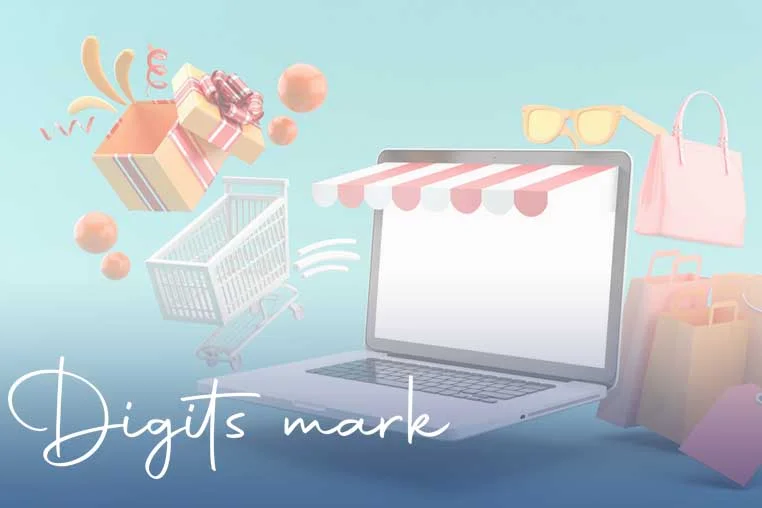Introduction
For centuries, success in commerce was defined by a simple formula. Secure a profitable spot for your cart. Shout louder than your competitor to attract more foot traffic. Operate at a lower cost to pocket more profits.
In the 21st century, it’s not that simple.
Large, vocal brands often fail to connect with modern consumers. The physical location can be more of a nuisance than a convenience. And a small store can be operated with a lean budget and no inventory at all.
All of the above makes it easier for digital-first retail brands to carve out a spot even in saturated markets. So if you plan to create an online store, you have plenty of headroom in 2022.
Content table
Online shop
Successful Factors To Consider When Running An Online Store
Online shop
Online shopping is a form of electronic commerce which allows consumers to directly buy goods or services from a seller over the Internet using a web browser or a mobile app. Consumers find a product of interest by visiting the website of the retailer directly or by searching among alternative vendors using a shopping search engine, which displays the same product's availability and pricing at different e-retailers. As of 2020, customers can shop online using a range of different computers and devices, including desktop computers, laptops, tablet computers and smartphones.
An online shop evokes the physical analogy of buying products or services at a regular "bricks-and-mortar" retailer or shopping center; the process is called business-to-consumer (B2C) online shopping. When an online store is set up to enable businesses to buy from another businesses, the process is called business-to-business (B2B) online shopping. A typical online store enables the customer to browse the firm's range of products and services, view photos or images of the products, along with information about the product specifications, features and prices.
Online stores usually enable shoppers to use "search" features to find specific models, brands or items. Online customers must have access to the Internet and a valid method of payment in order to complete a transaction, such as a credit card, an Interac-enabled debit card, or a service such as PayPal. For physical products (e.g., paperback books or clothes), the e-tailer ships the products to the customer; for digital products, such as digital audio files of songs or software, the e-tailer usually sends the file to the customer over the Internet. The largest of these online retailing corporations are Alibaba, Amazon.com, and eBay
Successful Factors To Consider When Running An Online Store
Whether you’re an E-Commerce novice or a seasoned vetran. It is important to understand the key factors make a successful online business. Below we list our some successful factors to consider when running an online store
1. Clear Market Position
The level of competition amongst online businesses is fierce. New stores are opening every day and with barriers of entry being extremely low, it is important to establish a clear market position.
So how do you present a clear market position?
Your website is the best place to start, after all, it’s where you make your sales. It is important that you ensure your website clearly articulates the companies target market, brand message, products and pricing.
Social media posts and campaigns must present a clear and consistant brand message that aligns with your overall company image.
2. Superior Sales Service
Many consumers who continue to shop at retail stores and outlets choose to because of the higher level of personal interaction and customer service. Despite customer service satisfaction levels arguably declining over the past decade, it is important that your e-commerce website maintains superior sales service to compete with traditional retail stores.
customer service Customer Service is the key to success in E-Commerce
The most successful E-Commerce stores are easily navigated and have product information that is readily accessible.
After sales service is key to E-Commerce growth according to Forbes. There are many online businesses that do not respond to customer concerns or their responses are very slow. Response time is crucial because three out of five customers never complete their purchase due to poor customer service. Therefore, retailers should try to address all after-sales issues in a prompt and efficient manner to build a loyal customer base.
3. Ability To Control Stock On Hand
Retailers that maintain adequate stock controls can monitor key selling items and ensure a sufficent supply of popular products to meet demand during key selling periods. By using an order fulfillement service such as Keepspace online business owners are able to see a live count of their stock which saves business owners time, energy and the hassle of digging through boxes of boxes stock to find out a company’s stock count.
4. Ability To Quickly Adopt New Technology
Due to the fast paced nature of the industry, operators must efficiently adopt and implement advances in technology to minimise disruptions for consumers and maximise sales revenue. Technologies such as Afterpay are great for giving consumers piece of mind and an easier method of purchase which may lead to an increase in sales. According to the Afterpay website “Afterpay is fully integrated with all your favourite shops. Shop as usual, then choose Afterpay as your payment method at checkout.” E-Commerce business owners should also think about what technologies consumers are using for example mobile phones.Commerce graph According to an August 2016 study by the Interactive Advertising Bureau Australia, more than a quarter (27%) of consumers polled made mobile purchases on a weekly basis, and 5% did so daily.
In addition, 45% of respondents said they purchased products via smartphone or tablet on a monthly basis. Therefore, it is important that your E-Commerce site is mobile friendly. So your store does not miss out on any potential sales from customers who feel your E-Commerce site is not legitimate.
5. Loyal Customer Base
Creating a loyal customer base is a difficult task. Especially, when your main business operations are done online with minimal contact with your customers. However, according to the latest IBIS World report. Converted customers can turn into loyal customers with repeat purchase behaviours. Through product quality, efficent delivery and execeptional customer service. Loyalty has a direct impact on revenue, provides your brand with positive word of mouth (WOM) which is the best form of marketing and an increase in average revenue per user (ARPU)







